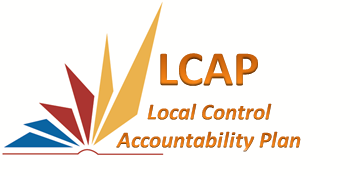Antioch School District 2018-19 budget decreases again, this year by $4.2 million
Board discusses LCAP, LCFF; support staff contract approved
 By Robert Pierce
By Robert Pierce
At the June 13, 2018 Antioch School Board meeting all five trustees discussed the draft Local Control Accountability Plan (LCAP) and preliminary budget for the 2018-2019 school year. They also approved the tentative collective bargaining agreement between the district and California School Employees Association for non-teaching support staff, and several new district policy items that were voted on as a group. Summary of Tentative Agreement CSEA
The meeting began with official congratulations to the recent high school graduates, and a happy birthday message by the rest of the board to trustee Walter Ruehlig.
There was a single comment from the public by Mary Rocha, who is planning on running for the board in November’s election. She urged the board to reconsider their decision and “if nothing else, slow down” the development of two new charter schools, which the board authorized last month. Rocha cited concerns with budget and documentation as reasons to reconsider.
“I ask you to reconsider, because, in the end, we are going to be affecting our own school system and our own employees,” Rocha said.
Back on the main agenda, district reports were given on both the LCAP and the Local Control Funding Formula (LCFF) by Dr. Jason Murphy. 2018-2019 LCAP District Report
According to the official district website, “The Local Control Funding Formula (LCFF) is a California funding calculation that recognizes that students with additional academic needs – low-income, English language learner, and foster youth students – need additional financial resources to support their education.”
The LCFF provides a per-pupil “base grant”, a “supplemental grant” for every student in one of the target areas and a flat “concentration grant” for districts with more than 55% of their students in one of those three groups. The LCAP, in turn, is a “planning tool” in which the district uses to report how they are going to use that funding, as well as the effectiveness of the programs and services the funding was used on.
Specifically, the LCAP, which AUSD has received funding from since the 2013-2014 school year, has local districts tie their budgets to concrete improvement goals. AUSD’s LCAP for this year currently has six LCAP goals, which according to Murphy were designed to mirror both state priorities and Maslow’s hierarchy of needs and include goals such as “Provide effective and enriching learning environments,” “Build inclusive school communities” and “Reduce the achievement gap amongst student groups.”
Murphy brought with him several students and parents from district high schools to comment on their involvement with the process of developing an LCAP. All of them spoke highly of their experiences with the program and expressed a desire for greater student and community member involvement, even at the middle school level.
Trustee Debra Vinson asked how the efficacy of a program is tracked, specifically programs dealing with behavioral justice, and mentioned the district’s current struggles with high suspension, expulsion and absenteeism despite heavy investment in programs such as “Positive Behavioral Interventions & Supports”. Vinson also asked how it is determined when and if a program needs to be dropped entirely.
Murphy responded that there is an on-going process of in-depth analysis of each program and service associated with LCAP, a big part of which involves getting community feedback and perspectives from students and parents, and using this data to help shape LCAP goals, mentioning specifically that they are actively working on using grant money to bring in more mental health professionals.
Murphy also explained that they have a vetting process for any vendor they choose to do business with, but for vendors who already passed the vetting and have a contract but are underperforming, information and data on the programs and services that vendor provides are available on the district website so that any staff member or community member can see how well they are working and use the data to have “critical conversations.” For Murphy, getting the LCAP data online, publicly available, was a major goal.
“We thought our theory of action would necessitate that we develop a process that includes all stakeholders,” he stated. “Available on the district website… is the list of all of our stakeholder engagement opportunities.”
Murphy said he strove for more engagement with stakeholders “whether they are students, parents, staff members or even community members” so that they can collaborate directly with the district to improve LCAP goals and processes. Another stated reason for online engagement was so that community members could interact with LCAP even if they were unable to physically attend meetings on it.
Vinson also specifically asked about the potential creation of a Restorative Justice program and a school site Climate Team to tackle issues regarding bullying and student emotional trauma that affect student attendance and classroom behavior; Associate Superintendent Christine Ibarra responded that she currently has a team looking into that issue and considering multiple solutions to it including Restorative Justice.
Ultimately Ruehlig reflected that it was a lot of information to digest, and trustee Diane Gibson-Gray encouraged parents and students to reach out with their ideas.
District reports were also given on the 2018-2019 preliminary budget by several staff, chiefly Associate Superintendent Teresa Santamaria.
Santamaria highlighted that the full implementation of LCFF, the elimination of gap funding, rising expenditures and a potential recession are creating “a huge squeeze for local education authorities.” While revenue assumptions per grade level based off of ADA grants rose about $200, drastic shifts in both federal and local revenue sources as well as rising salary and benefit costs for many employees created said squeeze.
Despite all of that, however, the district only lost $4.2 million this school year compared to a loss of $9.9 million last year, and the district will remain in the black this year as well.
“Looking at this number, we can definitely say the budget year 18-19 will be positive,” Santamaria stated. However, she explained that in the long term, due to revenue losses and expenditure increases as well as the opening of new charter schools in the area, “there will be a huge impact on our fund balance.”
Santamaria declared that the full budget will be presented at the June 27 meeting and will include more in-depth discussion of “the major components of the budget” as well as “multi-year budget projections” with true budget balance being a huge goal for the future.
In addition to district reports, there were public hearings for both the LCAP and the preliminary budget, despite the public having already had chance to comment; Board President Gary Hack observed that it was a “silly” situation but, required by law. Predictably, both public hearings ended without any comment.
No votes were taken for either item during the meeting. The final adoption is expected to occur at the board’s meeting on June 27.
Employees Association Contract Approved
“Disclosure and Ratification of the Tentative Agreement Between Antioch Unified School District and California School Employees Association for 2017-2018,” was passed 5-0 with little to no discussion by the board, merely accepting the result of a collective bargaining agreement already settled by the district required by law to be publicly disclosed before final confirmation. The settlement included extra pay and benefits and a definitive workweek of five consecutive days Monday through Friday for most employees. The district also commended both sides of the negotiation. The full settlement, ratified 5-0
To view the complete meeting, visit the District’s YouTube Channel.
the attachments to this post:
2018-2019 LCAP District Report
2018-2019 LCAP District Report
Summary of Tentative Agreement CSEA
Summary of Tentative Agreement CSEA


























